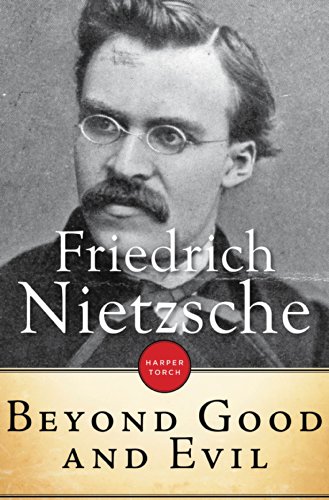
Nietzsche argues that morality is not an objective truth but rather a subjective construct created by those in power to control and manipulate the masses
Shoukat Lohar
Friedrich Nietzsche’s “Beyond Good and Evil” is a seminal philosophical work that challenges traditional notions of morality and ethics. In this book, Nietzsche argues that morality is not an objective truth but rather a subjective construct created by those in power to control and manipulate the masses. He believes that individuals should reject traditional morality and create their own values based on their own desires and aspirations.
To truly understand Nietzsche’s ideas in “Beyond Good and Evil,” it is necessary to read the book in its entirety and consider its historical context. Nietzsche wrote the book in the late 19th century, during a time of great social and political upheaval in Europe. The book was a reaction to the prevailing moral and ethical values of the time, which Nietzsche believed were outdated and no longer relevant to the modern world.
In terms of its relevance today, Nietzsche’s ideas in “Beyond Good and Evil” continue to be debated and discussed by scholars and thinkers.
Nietzsche was radical in her thoughts. He is matchless in his work beyond good and evil
Some argue that Nietzsche’s rejection of traditional morality and his emphasis on individualism and personal freedom are still relevant in today’s society, which is characterized by increasing diversity and the erosion of traditional values. Others argue that Nietzsche’s ideas are too radical and individualistic, and that they fail to take into account the need for social cohesion and collective action in addressing societal problems.
In any case, it is clear that Nietzsche’s ideas in “Beyond Good and Evil” continue to be relevant and thought-provoking, and that they will continue to be the subject of debate and discussion for years to come.
Nietzsche was radical in her thoughts. He is matchless in his work beyond good and evil. He says it’s made by powerful people.
His rejection of traditional morality and emphasis on individualism and personal freedom have been seen as both liberating and dangerous, depending on one’s perspective
Friedrich Nietzsche’s “Beyond Good and Evil” is a revolutionary philosophical work that challenges traditional notions of morality and ethics. In this book, Nietzsche argues that morality is not an objective truth but rather a subjective construct created by those in power to control and manipulate the masses.
Nietzsche’s argument in “Beyond Good and Evil” can be seen as a critique of traditional morality, which he believes is based on the values of the ruling classes and is used to maintain their power and authority. According to Nietzsche, the values that are considered “good” or “evil” are not inherent in the universe, but are rather constructed by human beings as a way of creating order and stability in society.
Nietzsche argues that traditional morality is oppressive and restricts individual freedom. He believes that individuals should reject traditional morality and create their own values based on their own desires and aspirations. Nietzsche’s philosophy is characterized by a celebration of life and a rejection of the idea that suffering and pain are necessary for personal growth and development.
Nietzsche’s ideas in “Beyond Good and Evil” have been seen as radical and controversial, and have influenced many thinkers in the 20th and 21st centuries. His rejection of traditional morality and emphasis on individualism and personal freedom have been seen as both liberating and dangerous, depending on one’s perspective.
However, it is important to note that Nietzsche’s ideas are not without their critics. Some argue that his philosophy is too individualistic and fails to take into account the need for social cohesion and collective action in addressing societal problems. Others argue that his rejection of traditional morality is a recipe for chaos and anarchy.
Despite the criticisms, Nietzsche’s ideas in “Beyond Good and Evil” continue to be influential and thought-provoking. They challenge us to question traditional assumptions and to create our own values based on our own experiences and aspirations. Nietzsche’s work continues to inspire debate and discussion among scholars and thinkers, and it remains relevant to our understanding of morality and ethics in the modern world.
_______________
 Shoukat Lohar is Assistant professor in English at Mehran University of Engineering and Technology Jamshoro Sindh. He can be accessed at Shoukat.ali@faculty.muet.edu.pk
Shoukat Lohar is Assistant professor in English at Mehran University of Engineering and Technology Jamshoro Sindh. He can be accessed at Shoukat.ali@faculty.muet.edu.pk